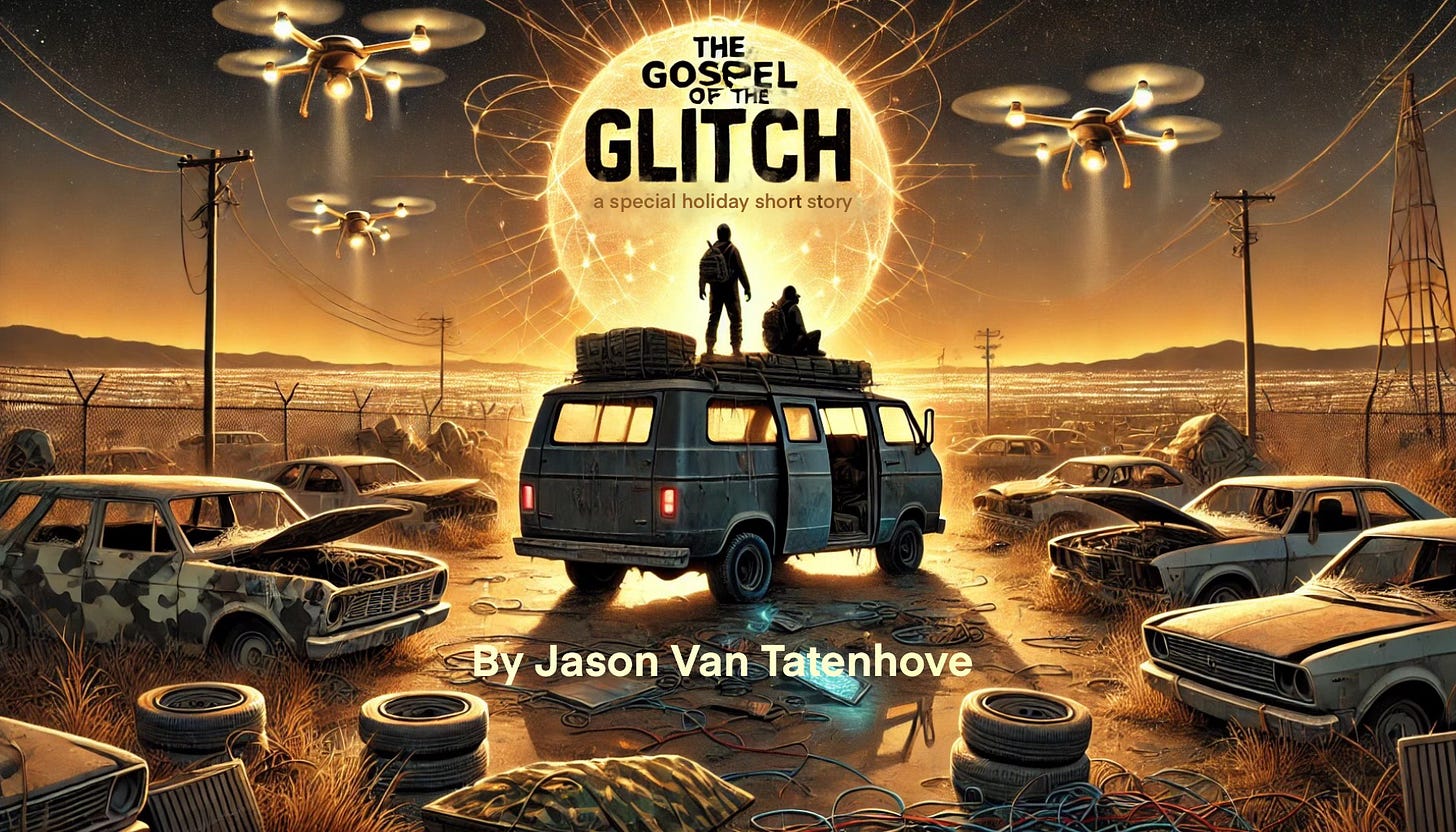The Gospel of The Glitch
An orginal Special Holiday Sci-Fi Short Story by Jason Van Tatenhove
Author's Note:
Welcome back to another holiday season with the Colorado Switchblade! For those of you who’ve been with me for a while, you know I have a tradition of putting out a holiday-themed short story every year. This year’s tale, The Gospel of The Glitch, takes us into the all-to-near-future world of drones, AI, and resistance—wrapped in just enou…



